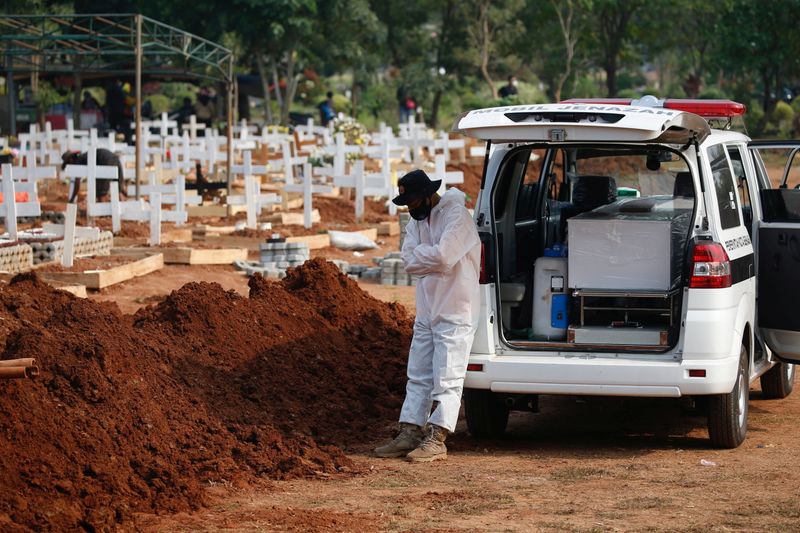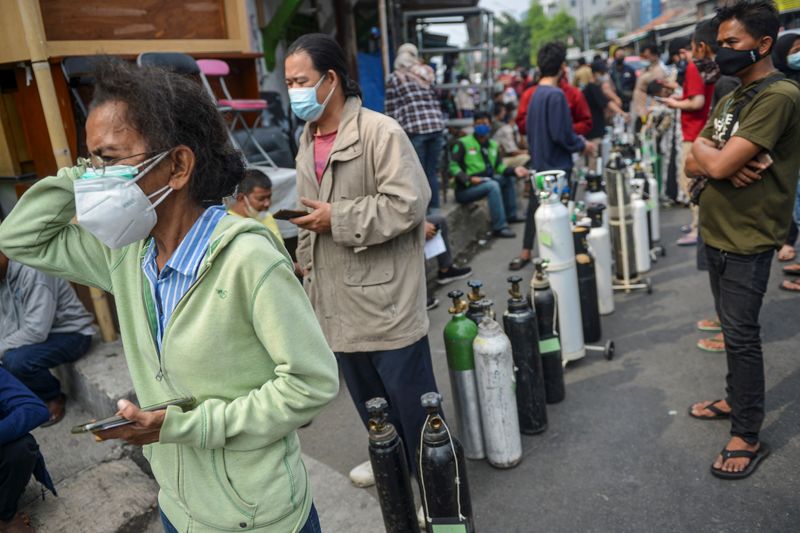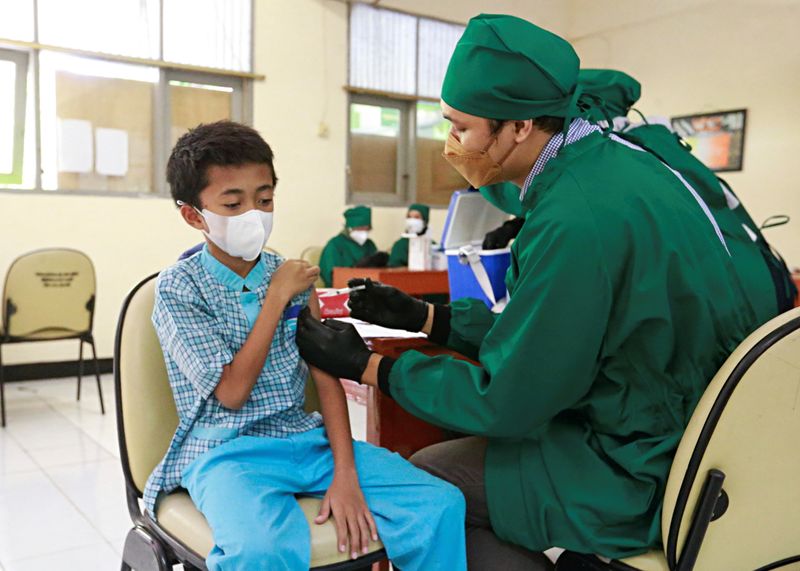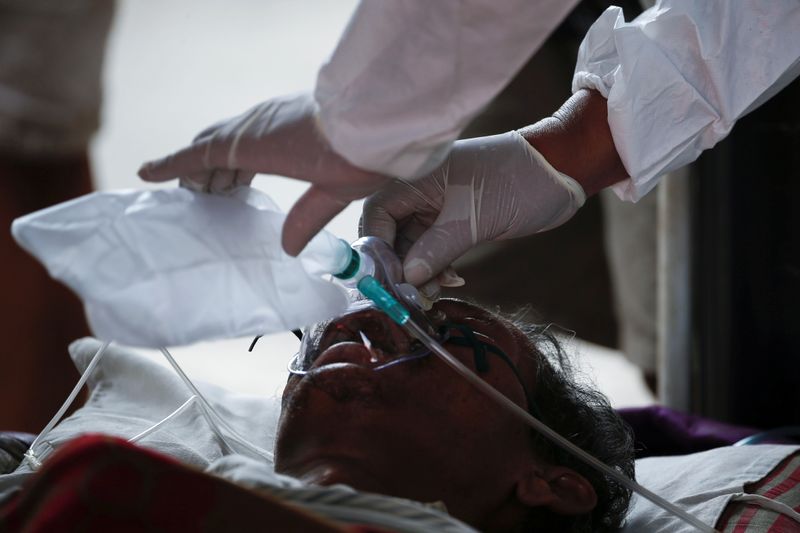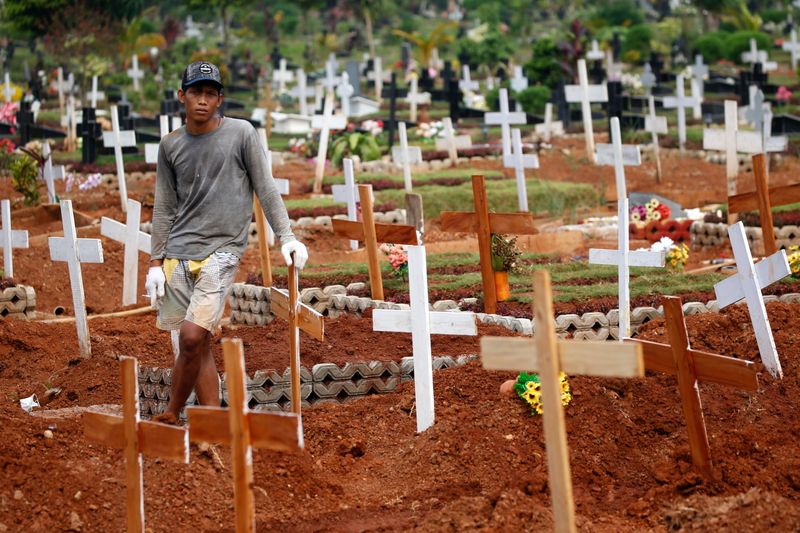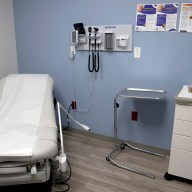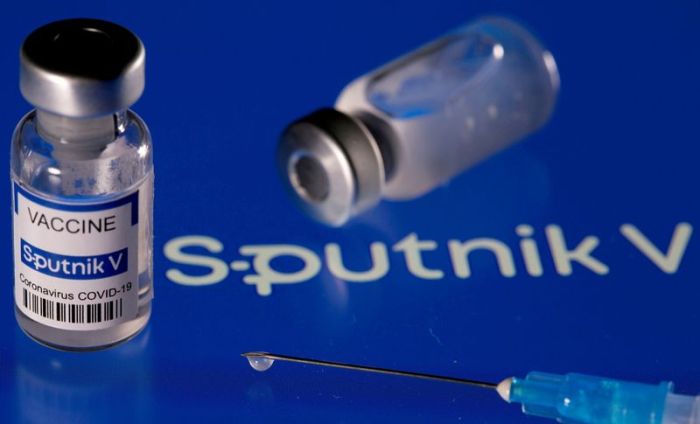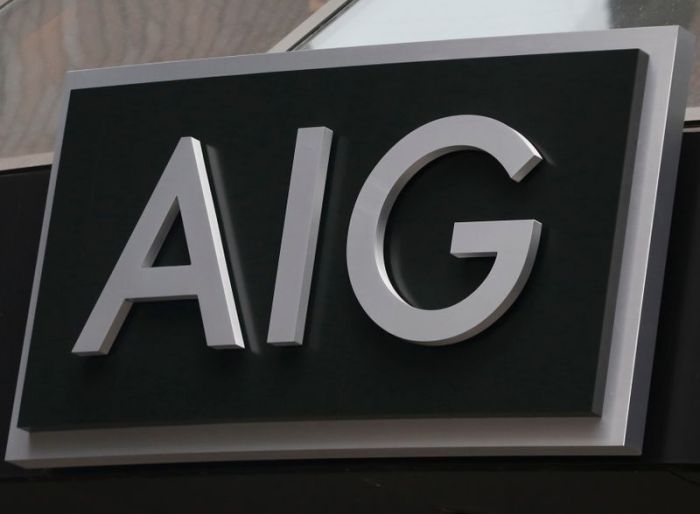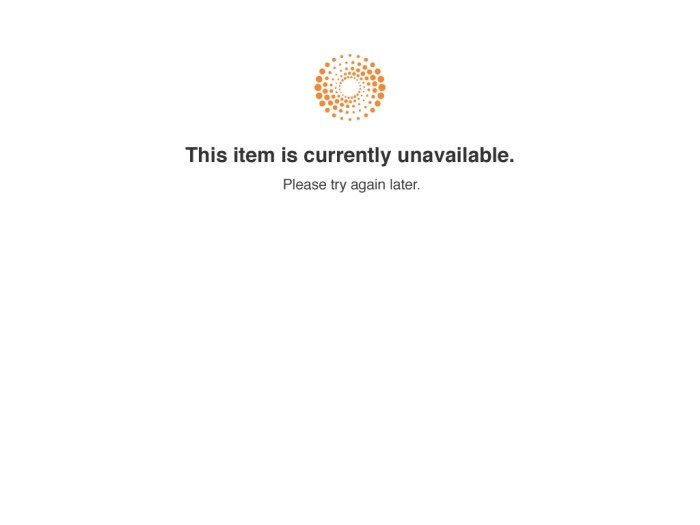(Reuters) – Indonesia is now fighting a “worst-case scenario” epidemic, a senior minister said on Thursday, adding the government was preparing for a further spike in coronavirus cases as the more virulent Delta variant spreads.
The world’s fourth most populous country is struggling to slow COVID-19 transmission even after imposing its toughest mobility curbs yet, while its immunisation rate is low, with just 5.8% of its 270 million people fully vaccinated.
Indonesia recorded 56,757 new cases on Thursday, surpassing the daily infections tally of India, which at its peak in May saw more than 400,000 daily cases.
“It’s very fair to say that Indonesia is the epicentre of Asia,” said Dicky Budiman, an epidemiologist at Australia’s Griffith University.
Senior minister Luhut Pandjaitan said daily cases could still climb as the Delta variant, first identified in India, has a two- to three- week incubation period.
“We’re already in our worst-case scenario,” Luhut said.
“If we’re talking about 60,000 (daily cases) or slightly more than that, we’re okay. We are hoping not for 100,000, but even if we get there, we are preparing for that,” he added.
The government has converted buildings into isolation facilities, deployed fresh graduate doctors and nurses to treat COVID-19 patients and imported oxygen and drugs, he said.
Indonesia’s food and drug agency (BPOM) has authorised the anti-parasitic drug ivermectin for emergency use against COVID-19, a health ministry official told Reuters. BPOM did not immediately respond to requests for comment.
While the World Health Organization has recommended it not be used for COVID-19 patients, it has been used in some countries to treat the respiratory disease, including India.
BPOM also approved the Pfizer-BioNTech mRNA vaccine on Thursday, of which Indonesia will receive 50 million doses.
Hospitals in the densely populated Java island have been deluged in recent weeks, with many struggling to get treatment and hundreds dying in self-isolation.
Cases and bed occupancy rates have also risen in parts of Sumatra and Kalimantan and more remote regions like West Papua, where health facilities are less equipped to handle an outbreak.
Luhut also said vaccine efficacy was weaker against the Delta variant spreading fast across Java, but urged people to get inoculated to help prevent serious illness and death.
The government was analysing the situation and would decide whether to extend the restrictions beyond July 20, he said.
Meanwhile, Indonesia’s COVID-19 task force said health protocols were not being widely, followed despite mobility curbs.
The KSPI labour union estimated more than 10% of workers in the manufacturing sector had become infected and many had died, with some factories defying laws and operating at full capacity.
“This is very worrying and endangering the survival of the business world and the lives of workers,” KSPI chairman Said Iqbal told a news conference.
(Reporting by Gayatri Suroyo and Stanley Widianto; Additional reporting by Bernadette Christina Munthe; Editing by Ed Davies and Ana Nicolaci da Costa, Martin Petty)

